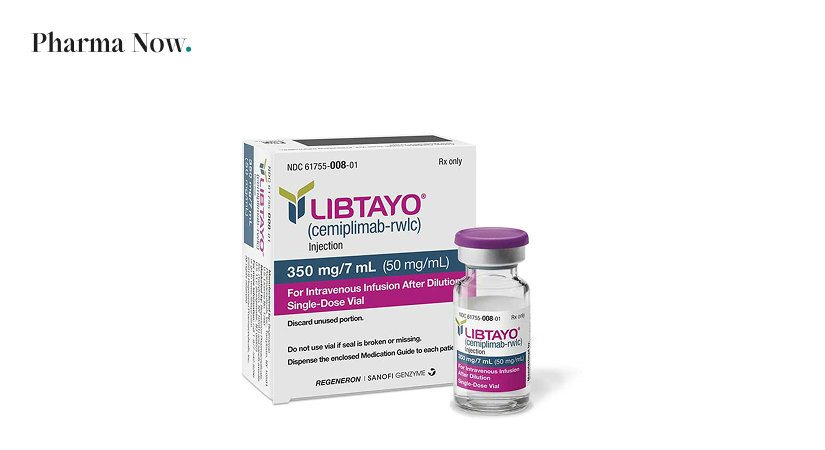Libtayo® Gains EU Approval For Adjuvant Use In CSCC Patients At High Risk Of Recurrence, Offering First Immunotherapy Option Post-Surgery And Radiation
EU approves Libtayo as adjuvant therapy for high-risk CSCC, reducing recurrence risk and expanding its immunotherapy reach.
Breaking News
Nov 20, 2025
Simantini Singh Deo

Regeneron Pharmaceuticals, Inc., announced that the European Commission has approved Libtayo (cemiplimab) as an adjuvant treatment for adult patients with cutaneous squamous cell carcinoma (CSCC) who are at high risk of recurrence following surgery and radiation. This new approval expands Libtayo’s existing European Union indication for advanced CSCC to include patients at high risk of disease recurrence. Libtayo was also recently approved by the U.S. Food and Drug Administration in October for the same indication.
Paolo Bossi, M.D., Head of the Head and Neck Medical Oncology Unit and Associate Professor of Medical Oncology at Humanitas University and Humanitas Cancer Center in Milan, Italy, noted that while CSCC is often effectively treated with surgery and radiation, some patients continue to face the risk of disease recurrence and potentially life-threatening outcomes. He emphasized that earlier intervention is critical, and Libtayo represents the only immunotherapy proven to improve disease-free survival in this patient population, offering new hope for patients in need.
The approval is supported by results from the global Phase 3 C-POST trial, which compared adjuvant Libtayo to placebo in patients with CSCC at high risk of recurrence after surgery and radiation. The trial demonstrated a 68 percent reduction in the risk of disease recurrence or death for patients receiving Libtayo compared with placebo, with a hazard ratio of 0.32 (95 percent confidence interval: 0.20–0.51; p<0.0001). The detailed findings from this study were published in the New England Journal of Medicine in May 2025.
The safety profile of Libtayo in the adjuvant setting was consistent with its known safety profile in advanced cancers. In the trial, grade 3 or higher adverse events occurred in 24 percent of patients treated with Libtayo, compared to 14 percent in the placebo group. The most commonly reported side effects, occurring in at least 10 percent of patients receiving Libtayo, included fatigue, pruritus, rash, diarrhea, arthralgia, hypothyroidism, and maculo-papular rash. Treatment discontinuation due to adverse events occurred in 10 percent of patients receiving Libtayo, compared to 2 percent in the placebo arm, and two patients in each group experienced adverse events that led to death.
George D. Yancopoulos, M.D., Ph.D., Board co-Chair, President and Chief Scientific Officer of Regeneron, stated that CSCC is among the fastest-growing forms of skin cancer, and the European Commission’s approval of Libtayo as an adjuvant therapy represents a significant advancement in the treatment of this disease. He highlighted that this approval marks the sixth for Libtayo in the European Union and reinforces Regeneron’s commitment to developing innovative therapies for cancers where substantial gaps in care remain.
Cutaneous squamous cell carcinoma is a type of non-melanoma skin cancer and one of the most common cancers worldwide. While surgery can often successfully treat CSCC, patients with high-risk forms of the disease face an increased likelihood of recurrence. The incidence of non-melanoma skin cancers in the European Union is projected to rise by approximately 40 percent over the coming decades.
In addition to the new adjuvant indication for high-risk CSCC, Libtayo is currently approved in the European Union for the treatment of certain patients with advanced CSCC, advanced basal cell carcinoma, advanced non-small cell lung cancer, and recurrent or metastatic cervical cancer. This broad portfolio reflects Regeneron’s ongoing focus on expanding access to effective immunotherapy across multiple cancer types.
